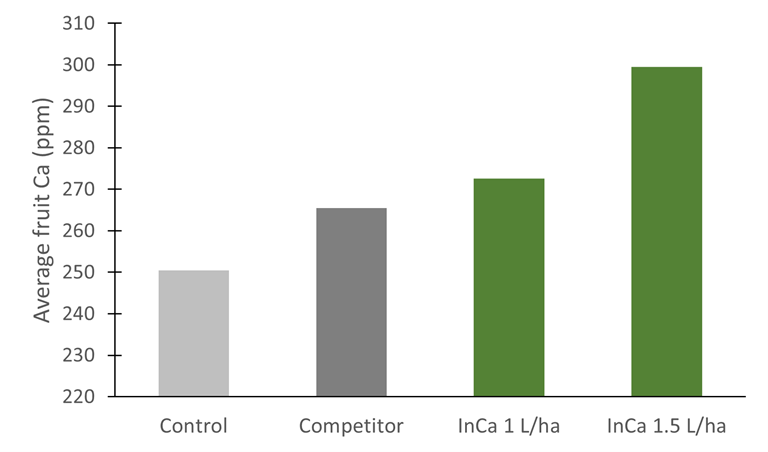
Melon
Melons can suffer from blossom end rot, a physiological condition that occurs due to calcium deficiency during fruiting, which leads to brown leathery area and rots at the distal end of fruits.
By applying biostimulant products that optimise the mobility and distribution of calcium, such as Plant Impact's Amētros™, Fortalis™ and InCa™, marketable yield can be increased. These products optimise the availability and distribution of calcium in the plant, increasing fruit calcium concentration, which limits blossom end rot, and improves firmness and marketable yield.
Benefits of Amētros, Fortalis and InCa on melon
- Increased fruit calcium
- Enhanced fruit quality
- Better fruit uniformity
- Compatibility with other Agrochemical foliar sprays

Increased fruit calcium
A Mexican field trial assessed the effect of InCa on fruit calcium and storage. InCa was applied (1-1.5 L/ha) to melons (cv. Cruiser) three times, at ten-day intervals from flowering. At harvest, fruit calcium (pulp and peel) increase by 20% following InCa (1.5 L/ha) applications. The number of healthy fruits after six to seven days of storage also increased.




